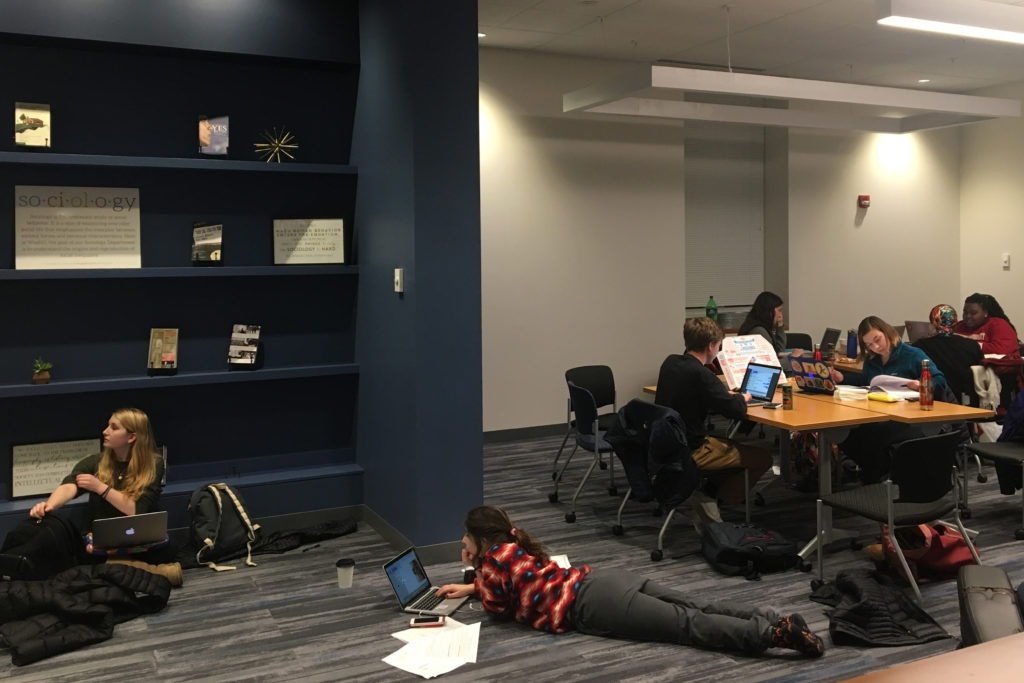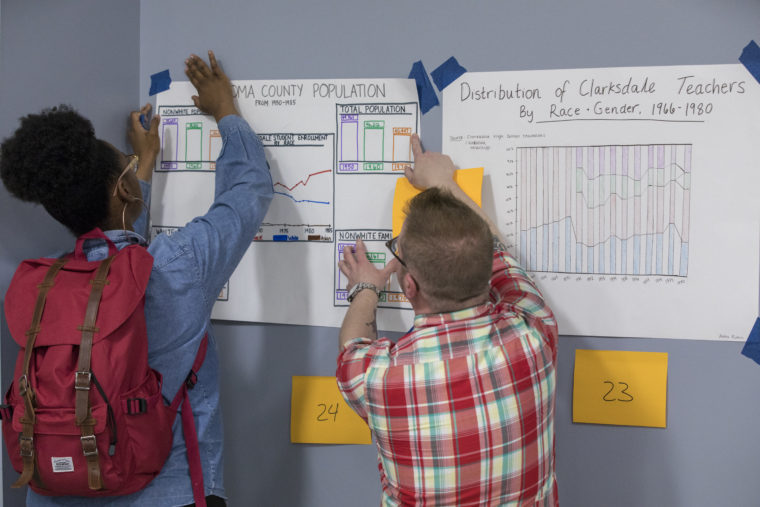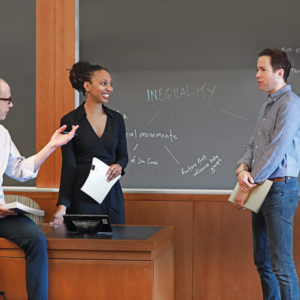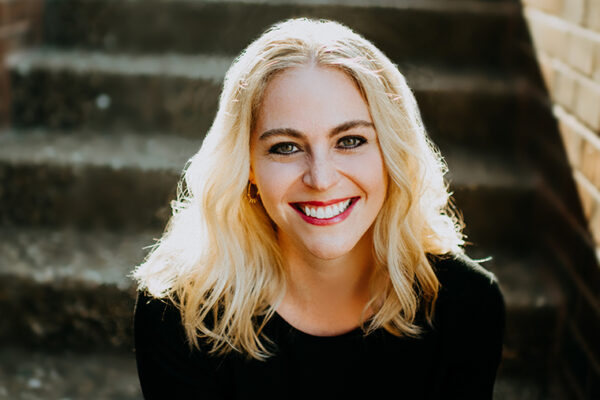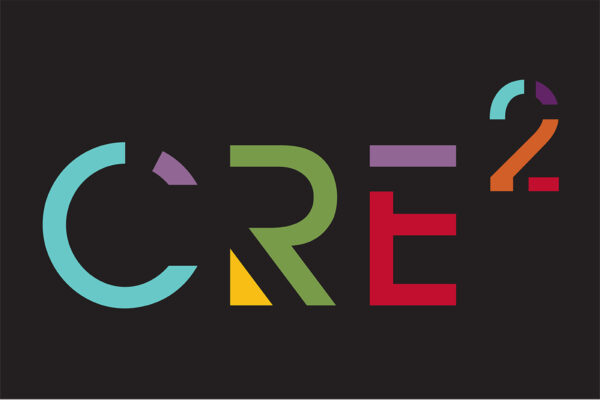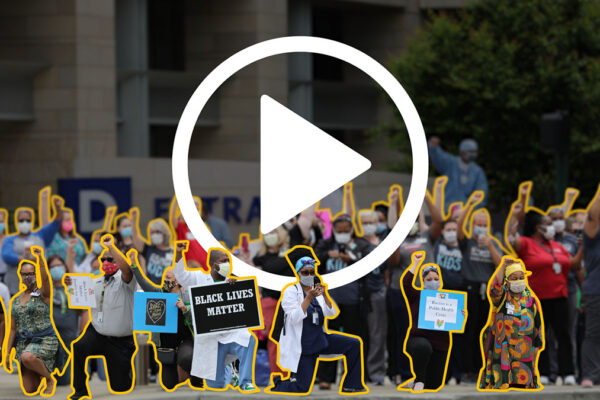John Robinson’s memories of life as a graduate student at Northwestern University were just months old when he joined Washington University’s fledgling sociology department in fall 2016. Since his arrival, he’s grown close to the students here, and looking back, he sees a big difference in how they relate to the sociology program.
“One of the biggest changes over my time here is how the students have come to think of the sociology department as a home, as their own special place at the university,” Robinson says. “They’re much more comfortable and relaxed when they’re around our office suite, and they’re here a lot. You can tell they really like being here. There’s a sense that this a place where they belong.”
Robinson, now an assistant professor in the department, credits much of that enthusiasm to the work of Candace Hall, who, as the department’s staff administrator, has quickly become an indispensable resource for both faculty and students. The department calendar is chock full of informal student events, pizza parties, movie nights and all-night study halls during exam week, all faithfully organized and attended by Hall.
With Hall’s help, several students in the department have spearheaded the rebirth of a Washington University chapter of Alpha Kappa Delta, an international honor society for sociology students.
Leading that effort has been Kate Thorne, who graduated in May with Latin honors, and Brian Tung, a rising junior who plans to graduate next year with a degree in sociology. Both Thorne and Tung have served as teaching assistants for sociology courses and have been active in organizing student events.
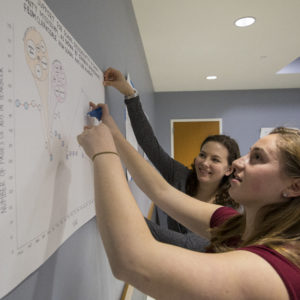
While the department is just beginning to develop a core group of would-be sociology majors, the department’s outreach efforts also draw praise from the hundreds of non-sociology majors who have taken courses in the department, says Bemnet Tesfaye, who has been involved with the program since her freshman arrival on campus in 2015.
Now a rising senior who expects to graduate in 2019 with a major in international affairs and minors in Arabic and French, Tesfaye had hoped to pursue a double major in sociology. She eventually determined the extra course load would be too much to squeeze into an already jammed schedule, but she remains one of the sociology department’s biggest boosters.
Her first exposure to sociology came in a course on race and ethnicity taught by Jake Rosenfeld, which was conceived as St. Louis was in the midst of unrest and protests over the police-shooting of Michael Brown in Ferguson. She appreciated how concepts discussed in the class helped her better understand what was taking place in the streets.
Tesfaye, who goes by “Bem,” grew up in Iowa after emigrating to the United States from Ethiopia, has since taken several more courses in sociology, including Ariela Schachter’s class “Sociology of Immigration.”
The course inspired her to submit a proposal for university funding for an undergraduate summer research project in which she will interview immigrants from Ethiopia, Senegal and other African countries to better understand how they’re assimilating to life in St. Louis.
In another course with Schachter, she and fellow students are encouraged to examine why the social media they use on a daily basis has proven to be such a fertile ground for the spread of fake news. Known as “Alternative Facts: An Introduction to the Social Construction of Reality,” the course is designed to help students become more educated consumers of news, including understanding how interactions and social networks cause misleading stories to go viral.
Tesfaye says her experiences in the department and its courses already have changed the way she sees the world around her.
“What I’ve been learning in sociology has helped me better understand what’s going on when I look at issues in international affairs and public policy,” she says. “It helps me see these issues from the perspective of the people who are involved and how their lives are affected.”
